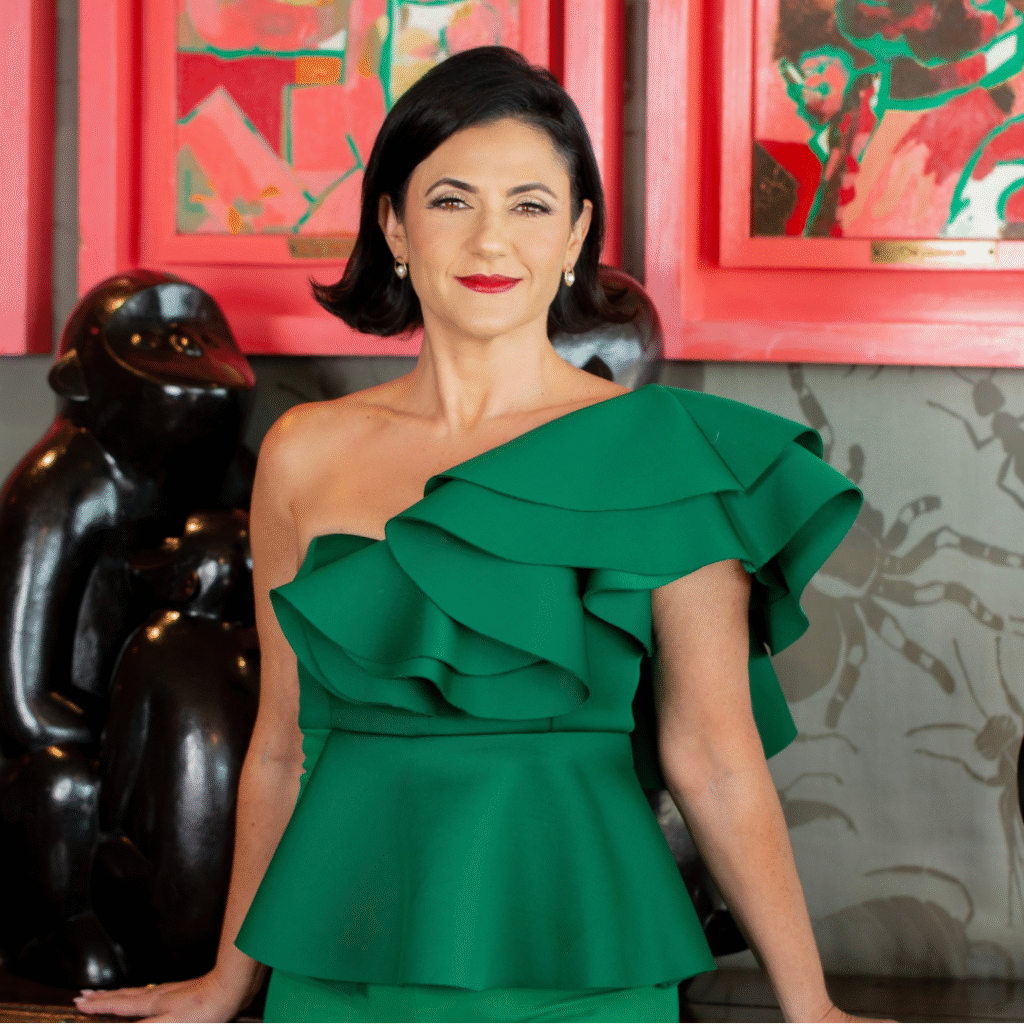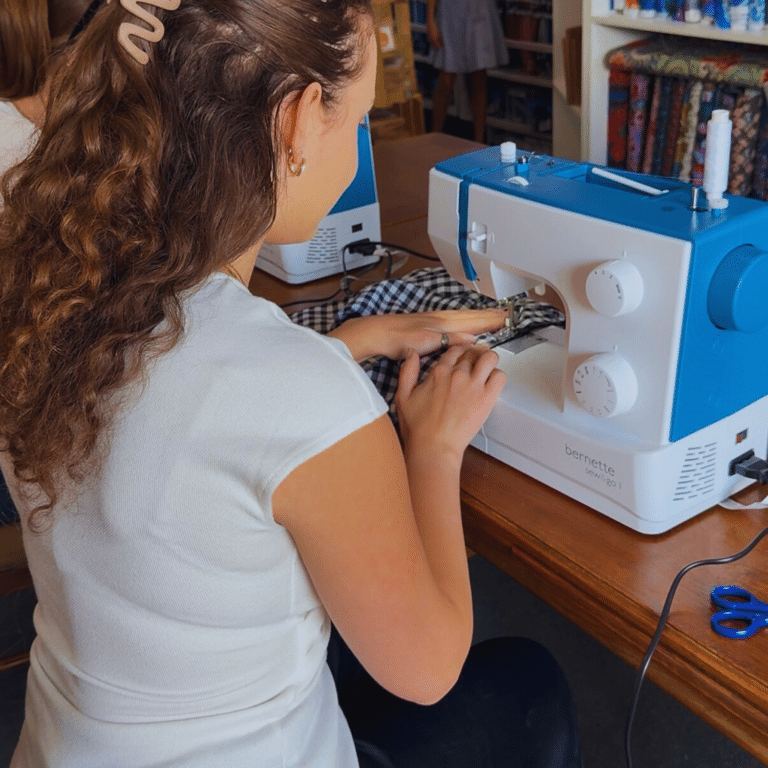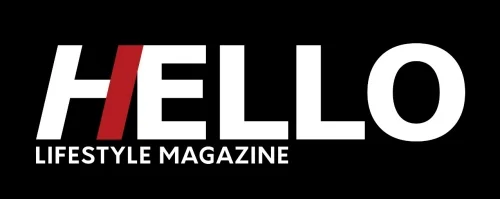Yael Geffen: Getting Real with the Queen of Real Estate
Her brilliant burden, feminine power and legacy left behind
Yael Geffen’s story is one of resilience, reinvention, and remarkable courage. Her story defies the straight lines of expectation: from couch-surfing in New York while hustling odd jobs, to an unexpected Broadway break, to navigating family tragedy that forever reshaped her destiny. Today, she stands as CEO of Sotheby’s International Realty South Africa — but the title tells only part of the story. Yael is more than a real estate leader. She is a fierce advocate for mental health, a voice for women carving space in male-dominated industries, and a mother who has learned to ground success in authenticity rather than performance. Her journey has been punctuated by glittering highs and devastating lows, but in each chapter, she chose not just to survive, but to transform. “I never took the straight line,” she reflects. “While everyone was saying I couldn’t, I went and I did it anyway.”
Early Dreams, Unexpected Turns
Yael Geffen was 22 when she left South Africa to chase a dream. One that was always lingering, but it took her grandfather passing away for her to act on it. After going on a Contiki tour around Europe, which just so happened to air on television as the “Ultimate European Roadtrip” or something of the sort, she found herself on her friend’s couch in London. Watching Sex and the City, and, as the glamour of New York flashed across the screen, she thought: “The city looks alive, liberating, full of character. I want to be there.”
So, she packed her bags and headed to New York City, where she again found herself on a friend’s couch. Knowing only two people (and not all that well either), she hustled her way through odd jobs: promoting film festivals, working in a Queens shoe factory, even brewing deliberately terrible coffee as a receptionist so she would never be asked again. Eventually, her grit landed her in marketing, where she showed her natural instincts for people and persuasion.
It was there that Yael’s tenacity led her to back an unknown acting troupe that had begged for pro bono work. “I read their script and thought ‘this is brilliant.’ My bosses told me no, but I said, ‘if we don’t do this, I’m walking.’ It was a gamble.” The gamble paid off. That little play went on to win four Tony Awards.
But New York was never linear. She was soon let go again, belly-danced her way through unemployment, then picked herself back up in Los Angeles with another marketing role. Even that ended abruptly with the American financial crash. “I wanted to go down like a lady. So, I won the company the 18th Academy Awards account — and then it was over.”
Next came tragedy: “My best friend’s father died, dramatically in an accident, and I came to South Africa to visit. It was meant to be brief. But I just never went back.”
Loss, Legacy and Leadership
Intending to lend a helping hand to her family’s business whilst on home soil, she always planned to go back to New York. But life rarely happens as you plan it – Yael ended up staying in South Africa, marrying her ex-husband and having a child. Amidst this, her brother lost his struggle to mental health. He had named her as an alternate director of Lew Geffen Sotheby’s in his will. When he died by suicide in 2009, she stepped into his shoes with grief still raw.
Yael waded her way through this new chapter. “I never planned to stay,” she admits. “I thought I was just helping. But life doesn’t always go as you plan.” For six years she quietly worked in marketing and on the board. Then another unimaginable tragedy struck: the then-CEO of the company murdered his wife at a company conference. Overnight, Yael became CEO. “I didn’t really want it,” she recalls. “But I always think of that Shakespeare quote: some are born great, some achieve greatness, and some have greatness thrust upon them. And that felt like me, all of a sudden I was thrust upon this position overnight. And to top it all off, I was also the only female CEO in the industry.”
That last fact is what determined how she would hold herself in the years to come. It was a baptism by fire. She had to steer a shaken company through scandal and trauma while navigating her own grief and self-doubt. The only way forward, she realised, was authenticity.
Finding Power in Authenticity
At first, she tried to “play the part.” She wore suits, ties, even adopted a harder, more masculine tone to fit in with the boys’ club around her. “But one day I looked in the mirror and thought, ‘Yael, you look ridiculous. This isn’t you.”
She remembers: “In New York, they would throw a football to each other at our meetings. It would always go straight past me to the other guys. One day, I asked them to pass it to me. And they did. But as I threw the ball along, I thought: ‘I don’t need to do this’. That’s when I realised I’m different. I don’t need to be one of the boys. And that’s when I stepped into feminine power.”
When she became CEO, Yael acknowledges to have leaned into toxic masculinity, thinking she had to be more masculine simply because of the crown she wore. She stopped trying to emulate men and instead leaned into her feminine strength. She rolled up her pink sleeves and led by example. She spent her first year listening more than dictating, resisting the temptation to clean house or assert dominance. “I couldn’t arrive as the chief’s daughter after a murder and start firing people. I had to lead from a place of authenticity.”
That approach became her leadership philosophy: transparency, over-communication, and servant leadership. “There’s always a crisis. Pretending it’s fine when it’s not only breeds chaos. I chose to be honest. I was actually over-communicating, but people felt like they were part of something, they felt included. My leadership, like that from New Amsterdam, begins from a place of: ‘How can I help? What can I do?’ That’s how trust is built.”
The Brilliant Burden
Mental health has always been woven through Yael’s story — first misunderstood, then painfully lived, and now powerfully embraced.
“When I was younger, my brother was going through a depression, and I never believed him. I thought it was all in his head, his head. But, all of a sudden, in New York, I started having these panic attacks from nowhere and night terrors. One day, I found myself on the subway thinking I needed to jump in front of the train just to end it all. Before I did, I burst into my GPs rooms and said: ‘I don’t believe in depression. I don’t believe in anxiety. I don’t know what’s going on with me, but if you don’t give me something, I might not be around tomorrow’. I also leaned on my brother. He was so supportive. He actually found me a great psychiatrist in New York, and I started going to a therapist, and it uncovered that I was bulimic because I had been sexually abused but had blocked it out for 15 years. My mental health journey began: I was soon put on meds and started feeling better. But, then my brother committed suicide, and I became even more passionate about advocating for mental health.”
When he died, her grief turned into a calling. She began speaking publicly about her experiences, first with terror, then with growing conviction. “I thought people would turn their backs on me. Instead, the world embraced me. Leaders, CEOs, high-powered people whispered, ‘I struggle too.’ But they were too scared to say it aloud.” Yael calls this her “brilliant burden.” She cites author Kay Redfield Jamison, who wrote about the link between the geniuses of our time suffering from mental illness in Touched with Fire. “I realised my burden gave me empathy. It made me a better leader, more connected. I stopped seeing it as shame, and started seeing it as power.” Her voice is insistent: “Suicide is the number one cause of death in South Africans over 50. It’s a silent pandemic. We need to break the stigma. That’s why I tell my story.”
Breaking Barriers for Women
In an industry long dominated by men, Yael has become a force for female representation. Her advice to young women is pragmatic: “Say yes to everything until you can afford to say no. Put your hand up, even if you’re not sure of the answer. Men will. Women wait until they’re 70% sure. It’s generational, ancestral. We have to unlearn that.” She explains that women either feel like they are too much or too little, never enough.
As a female CEO, she faced both support and hostility. “There are men who uplift women – we have to raise our sons like that – and men who feel threatened. You get both. But the tall trees catch the wind, and I’d rather be criticised than invisible. It means I am doing something right. I would much rather be a one or nine out of ten, than an average five.”
That criticism only sharpened her belief in self-promotion. “I was asked by my mentor, Richard Mulholland, ‘Why don’t you market yourself the way you market your brand?’ He said to me: ‘You are the female CEO in one of the top real estate companies in South Africa, who is also a global brand. If you don’t know what makes you remarkable, no one else ever will.’ So, I started entering awards, and then I started winning. It isn’t arrogant. It isn’t egotistical. It’s self-promotion. I started to see the credibility that it gave me: not for myself, but for those in my industry who doubted me. I realised then that credibility and likability are the two keys to success. People do business with those they trust — and you can’t expect others to know what makes you remarkable if you don’t show them.”
Nevertheless, her advocacy extends beyond boardrooms to causes like gender-based violence and supporting single mothers entering the property market. “It’s historic — the majority of first-time buyers now are women, many of them single moms. That changes the industry. That changes society.” But, Yael has received backlash for her focus on empowering women. People have criticised her and said she is on an ego-trip, but another mentor of hers, Margaret Hirsch, said: “You should be revelling, because criticism means you are doing something right. But you just carry on. Don’t pay them any mind.”
Beyond Brick and Mortar
For Yael, property is not just business. It’s deeply personal. “We sell masterpieces in every price range. For one person, a cottage is their masterpiece. For another, it’s a mansion. Luxury isn’t a price tag, it’s an experience.” The Sotheby’s brand embodies heritage, dating back to 1744, older even than the United States of America. Coupled with the Geffen family legacy, it is both a privilege and a responsibility. “We’re custodians of history, but also innovators. That’s what keeps us at the forefront.”
We asked Yael what home is to her. “Home is beyond brick and mortar,” she begins. “It’s the way you create memories, and it is a journey, not a destination. Things happen between walls that will give people memories for a lifetime: markings on walls, picture frames dotted around, or chipped corners on skirtings. Home is a place of security and love. It can be a place of tragedy too, but it is always attached to something.”
Art, too, plays a role in her philosophy. “I remember my father bought me a pair of Jimmy Choos for my birthday one year. And I said, ‘these are amazing, but can I ask you for a piece of art that has the same value from Trevor Coleman instead?’” Art becomes a treasured possession that actually moves with you from home to home. Yael tells of how it holds memories and emotions too, just like property. “This is why I absolutely love this venue and love being at the CIRCA Art Gallery. Being surrounded by art just makes me happy. And I want to give this feeling to others too, especially my child.” She also explains that art is still one of the best investments in the world, because it can only appreciate with time. “There’s got to be something behind it – the highest net worth individuals in the world all collect art.”
Motherhood, Mentorship and Meaning
Motherhood has grounded her in ways business never could. “Being present with my child is the most important thing. Success is meaningless if you’re not emotionally available to those you love.”
Yet, she also speaks candidly about the loneliness of modern life. Despite the abilities of digital connection, there is no community anymore. “There’s a pandemic of loneliness. Everyone is isolated, even in high-powered positions. That’s why authenticity matters. People want vulnerability. They want to see the human behind the empire.”
Her hope for her legacy is clear: not just a thriving company, but a culture of compassion. As a sought after keynote speaker, Yael chooses to share her story with others in the hope of empowering and guiding them through life’s hardships. She talks about lessons learnt from real estate, mental health, resilience and women empowerment, using her platform to make meaningful change and impact. “I want people to know they’re not alone. We all have crises of confidence. The key is not to let them stop you. Leadership isn’t about pretending. It’s about being real and authentic. You shouldn’t ’fake it ‘til you make it’ because that is deception. Rather, make it without faking it.”
For Yael Geffen, success is no longer measured only in boardroom victories or industry accolades, but in the legacy she leaves behind — one of authenticity, advocacy, and courage. Whether she is mentoring women, breaking stigmas around mental health, or redefining leadership in real estate, Yael continues to prove that vulnerability and strength can coexist. Her story is a reminder that greatness is not always chosen — sometimes it is thrust upon you — and the true mark of leadership lies in how you rise to meet it.
EDITOR'S CHOICE
SPONSORED









